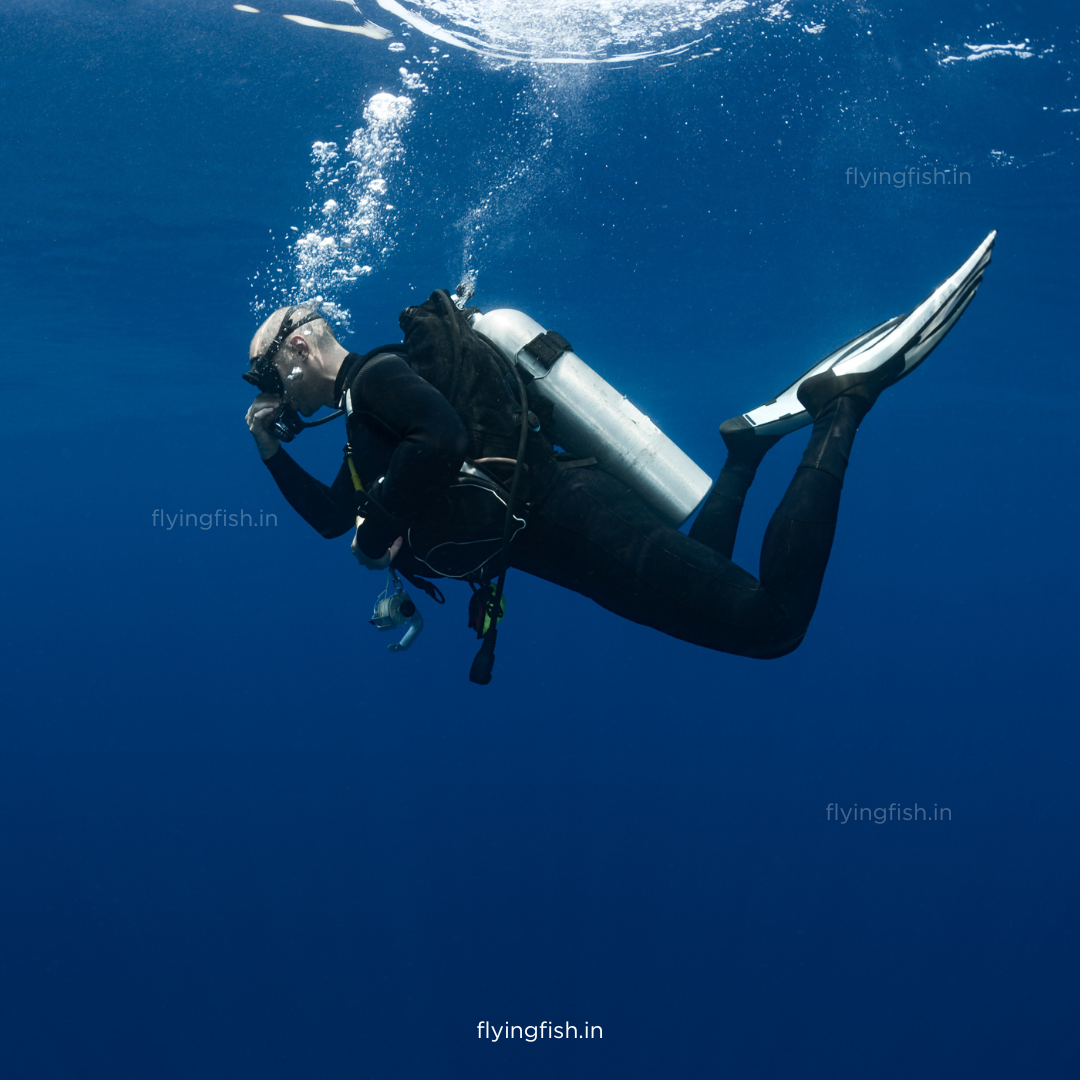9 things you shouldn’t do after Scuba Diving

Flying After Diving: Taking off right away might cause decompression sickness, also referred to as "the bends." This happens when abrupt pressure changes cause nitrogen bubbles to develop in the blood. After a single dive without decompression, it is advised to wait for a minimum of 12 to 24 hours, and for longer if you have done several dives or dives that require decompression breaks.

Driving through high-altitude regions or climbing mountains: Immediately following a dive, partaking in activities that include substantial altitude changes, including driving through high-altitude regions or climbing mountains, might raise the risk of decompression sickness. It's advisable to give your body some time to expel extra nitrogen before partaking in such activities.

After Diving: If ziplining is done right away after diving, the sudden changes in pressure and altitude can increase the risk of decompression sickness. It's best to postpone ziplining and other such activities until after you've had enough time on the surface.

Deep Tissue Massage: This type of massage may raise the risk of decompression sickness by possibly displacing nitrogen bubbles in the bloodstream. Deep tissue massages should be avoided right once after diving, particularly if you've done several deep dives or numerous dives.

Unwinding in a Hot Tub or Shower: These fixtures might improve blood circulation and possibly intensify symptoms of decompression sickness. It's best to avoid hot tubbing or taking a hot shower until after you've had enough surface interval time and your body has had an opportunity to off-gas nitrogen.

Overindulging in Alcohol: Consuming alcohol can cause dehydration and impair judgment, which might pose a risk after diving, particularly if you're still feeling the affects of the dive, such as weariness or dehydration. In order to allow your body to fully recover from diving, it is best to avoid binge drinking right away.

Exercise Soon After Diving: Vigorous exercise soon after diving can increase the risk of decompression sickness by promoting a faster rate of nitrogen absorption into tissues. It is recommended that you wait to start an aggressive workout program until you have completed enough surface interval training and your body has completely healed.

Ignoring Your Surface Interval: By giving your body a chance to release nitrogen that was absorbed during the dive, surface intervals lower your risk of decompression sickness. This risk can rise considerably if surface intervals are skipped or shortened. Following the suggested surface interval timings according to your dive profile is crucial.

Ignoring Your Body: After diving, pay attention to any indications or symptoms of decompression sickness, such as joint pain, tingling or numbness, lightheadedness, or trouble breathing. Pushing forward despite these warning indicators may have detrimental effects on your health. In the event that you encounter any symptoms, get help right once.

